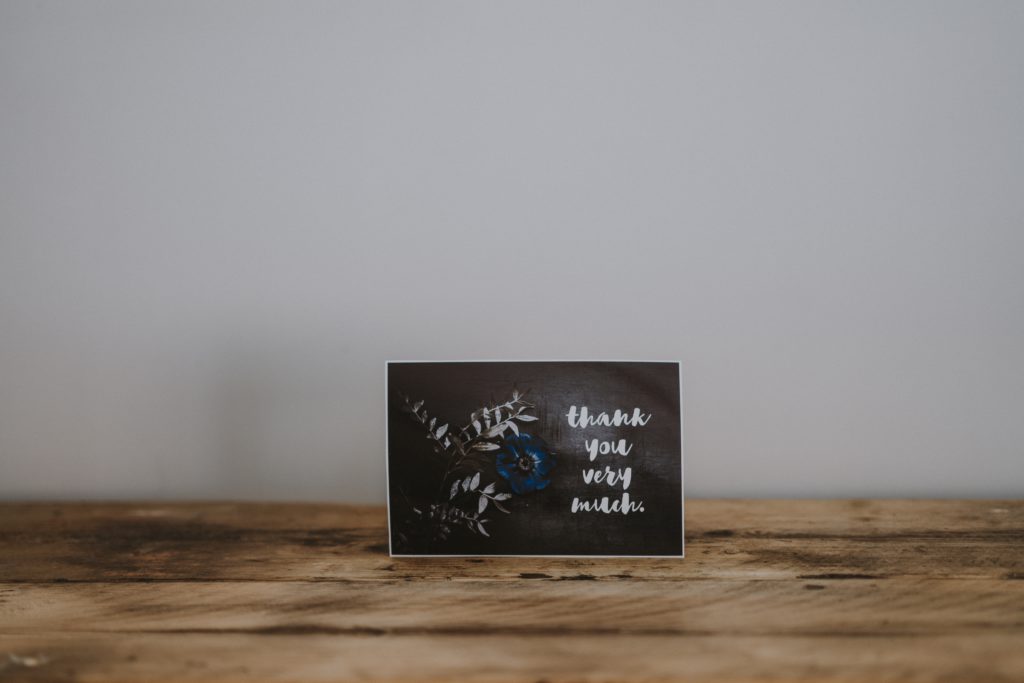Today I am going to write about 9 Ways To Say Thank You In Portuguese. When you go to another country, it is always nice to know some basic phrases and words to get your way around. One of those words, has to be “thank you“, because natives will be happy to know that you went all the way to learn a word that shows how thankful you are.
Now, can there be really so many ways to say it? Well, in Portuguese these word is a bit more complex than English or French, and there are many different expressions to show your appreciation. So, bottom line, the answer is yes! But if you want to know more, tag along to find out all about it!
Don’t forget to check out all the essential ways to say thank you in Portuguese in my YouTube video here:
Like my YouTube Channel? SUBSCRIBE HERE WITH ONE CLICK!
Most Common Ways Of Saying Thank You In Portuguese
Obrigado vs Obrigada
As you might have heard before, Portuguese women and men must say thank you in different ways. Men say “obrigado” and women “obrigada“.
This is so because the word means “to be obliged”, working more a less as an adjective. Adjectives, as you may know, take the gender from the noun or the person of the sentence. Therefore, men say the masculine form “obrigado” and women say the feminine form “obrigada”.
With this, they are kind of saying “I am obliged (to say thank you to you)”, much like the old times when people said “Much obliged!” in English. See what I mean?
So, to give you an example:
- Ana would say: João, obrigada pelo livro!/ Rita, obrigada pelo livro!
- Pedro would say: João, obrigado pelo livro!/ Rita, obrigado pelo livro!
As you see the masculinity or femininity of the word “thank you” in Portuguese, has nothing to do with the person that the “thank you” is directed to, but only with the person who is saying it =)
Nowadays, however, you will hear people using them interchangeably, since no a lot of people are really aware of this! This might have to do with the fact that we “eat” the ending vowels so no one really pays attention whether the ending vowel is an “o” or an “a”.
Another fact is that we almost use it as an interjection. That interjection is going to be always in the masculine form, so it won’t be uncommon if you hear a girl or woman saying “Obrigado” instead of the feminine counterpart.
Obrigadinho/ Obrigadinha
Ever heard this? If you’ve been with Portuguese people, you probably already found out that we love diminutives. In fact, we put “inho” and “inha” in everything.
The word “thank you” is no exception. In more informal conversations with neighbours or friends or even family, we will sometimes add this particle at the end of the word. This imprints cuteness or familiarity into it, which might come handy at the time of thanking someone.

How to say “Thank you very much” in Portuguese
Muito obrigado/obrigada
If you want to say “Many thanks” in a formal conversation, this is the way to go and you should even do it. It will give more power to your speech and it will leave a better impression of you. If you want to sound even more grateful, look at the next word.
Muitíssimo obrigado/obrigada or Obrigadíssimo/ Obrigadíssima
This is used in formal conversations when someone did something for you that really deserves a gigantic thank you. We use it in formal conversations to make it really clear how thankful we are!
The particle “íssimo” is added to adjectives to add power, to enhance the meaning, to make its value bigger, and this is exactly why we use it here.
Obrigadão
If you thought that giving the word a diminutive, as seen above, is all we can do, you were not right. We can also do the opposite. By saying “Obrigadão”, we are kind of saying “Big thank you”. This particle “ão” makes the adjective sound “bigger”, which can also mean your gratefulness is bigger.
Therefore, at least in the region of Porto, we tend to use this also in informal conversations with friends or family. It is quite slangish, so do not use it in formal conversations. Ever. =)
The Cuts To The Vowels
‘Brigad/ ‘Brigadinh/ ‘Brigadão
As I mentioned before, Portuguese are great at “eating vowels”. With thank you, we not only leave out the first “o”, as we almost don’t pronounce the last vowel as well. It will sound really odd to you, probably, but get used to it. We really do it A LOT! 🙂
Do not write it like this, though, as it is not correct to do it. Unless you are texting and exchanging SMS with friends…then it might be ok! In general, though, try to avoid it.
How to say thank you in Portuguese | 2 more examples
Agradecido/ Agradecida
“Agradecer” is the verb that means “to thank”. If you thought that it was something like “obrigadar”, I can understand why, but in fact it is “agradecer”.
So, when someone says “agradecido”, they are actually saying “I am thankful”. Like with “obrigado”, if you are a men you use the word ending in “o” and if you are a woman, you use the one ending in “a”.
You can use this version of “thank you” in more informal conversations. It would still be acceptable in a more formal setting, but it is not so commonly used.
Deus lhe pague
This is an expression that means “May God pay you”. Sometimes, we even add “…que eu não tenho dinheiro” to it. When we do so, we are saying “May God pay you, because I don’t have money”.
As you can see, we are just being funny and we will only say this to family or close friends, as a joke.
However, you can hear the first part – Deus lhe pague – as a serious expression of your thankfulness, as to say “I appreciate so much what you did that I wish God pays you – with health or wealth or any good things”.
Older people tend to use this expression a lot to say thank you and I find it kind of cute. Don’t you? =)

Obrigado as a Noun
As I mentioned above, “obrigado” or “obrigada” are used as adjectives. However, we can also use it as a noun, when we say something like:
O meu obrigado
This is used to say “thank you” as “I give my thanks to…”.
In this case, we use it to put the stress in the thank you, to give it more power. Since it is a noun, it takes the masculine article – o obrigado – and it will not change whether you are a woman or a man, because it is no longer an adjective.
Therefore, even if you are a woman, you will still say “O meu obrigado aos meus pais” (My thanks to my parents).
Get the picture? =)
I will repeat the different ways of saying thank you in Portuguese so you have an overview.
Obrigado + por
Just before you go, I need to draw your attention to the use of the prepositions. I know, they are not easy….
With “thank you”, you should normally use the preposition “por”, when you want to say “thank you for…”.
Take a look:
Ana: Obrigada pelo almoço! (Thank you for the lunch!)
António: De nada!
José: Obrigado pelas prendas! (Thank you for the presents!)
António: De nada!
In the sentences above, we use the preposition por + the article, and this is what you have to do when you want to thank someone for something.
9 Ways To Say Thank You In Portuguese
- Obrigado/ Obrigada
- Obrigadinho/ Obrigadinha
- Obrigadão
- Muito obrigado/obrigada
- Muitíssimo obrigado/obrigada or Obrigadíssimo/ Obrigadíssima
- ‘Brigad/ ‘Brigadinh/ ‘Brigadão
- Agradecido/ Agradecida
- Deus lhe pague
- O meu obrigado
Aaaanddd…this is it!
You made it through! And therefore, to end this article in big, I want to say Muitíssimo obrigada pela vossa atenção!
If you want to learn this topic and much more, make sure to check out my European Portuguese Master Course here.
Ok, peeps. I hope you enjoyed the article.
Tell us in the comments how you say Thank You in your language.
Mais uma vez, muito obrigada!
Beijinhos,
Mia.



I appreciate this information because, when we visited the Azores, I heard all sorts of things that sounded kind of like obrigado / obrigada but it seemed as if certain letters were dropped. Now I understand.
Olá Mark!
Obrigada pelo teu feedback!
In Azores there are certain regions where the accent is really hard to understand, even for us, continental Portuguese…
That being said, in general Portuguese speakers tend to “eat” the vowels, therefore the language sounds so difficult to understand.
I will maybe be doing a course just on pronunciation later this year. If you want, I also have an article just about it here:
https://learn-portuguese.org/basic-portuguese-pronunciation
Feel free to comment and give ideas.
Keep in touch and have fun learning Portuguese!
Beijinhos,
Mia.
Olá Mia,
Thank you for your very well written and educating blogs about the beautiful Portuguese language. I try to learn your language because my girlfriend is a lovely and beautiful lady born and raised in Lisbon and currently living in The Netherlands for several years. I learned from the Memrise app and from your blog that as a man I always have to say ‘obrigado’. However my girlfriend always tells me that I have to say ‘obrigada’ when I say ‘thank you’ to her because that is the rule when talking to a lady she says. Is this typical for Lisbon or is there another reason? And how to solve this matter in an elegant way, because I learned that as a man you always seems to lose when argueing with Portuguese ladies ?
Keep up your good work!
Xau!
Teun
Os Países Baixos / Holanda
Olá Teun!
Ahah, you seem to be in a pickle there and I am not absolutely sure to be able to help you with contradicting a Portuguese lady he he.
But that being said, a lot of Portuguese people make that confusion. They think that you have to adapt the word to the gender of the person you are speaking to… but that is not the rule and it is not correct. Based on the Portuguese language rules, you should say “Obrigada” only if you are a woman, because the word means “obliged” and you are saying that you are obliged to the other person. So, if you are a woman, you will be “Obrigada” and if you are a man, you will be “obrigado” 🙂 This has to do with the old way of people saying “thank you”, something like the “much obliged” in English. In Portuguese, the word still remains unchanged 🙂
Maybe you could explain this to her? Ah, and there is no difference between Lisbon and Porto in this sense 🙂
Thank you for your comment and good luck with your quest 🙂
At the end what matters is that you make your girlfriend happy 🙂
Obrigada!
Mia
Hi, I wish there was explanations on how to pronounce all the words as I am very unsure of how to pronounce Portuguese words.
Hi Mark!
Thank you very much for your comment.
I will add some audio files soon and hopefully they will help you with your pronunciation =)
Beijinhos,
Mia.
*EDIT*
Hi Mark,
as promised, I just added the audios =)
Beijinhos,
Mia.
Obrigado Mia, pode dizer agradeço ?
De nada!
Yes you can say “agradeço” as well. This means, “I thank you”, literally. 🙂
Obrigada eu! (This meaning a contrast, like “No, thank YOU!” in English).
Bem Haja is common here in Beira Baixa. Where does that come from?
Hi Russ!
Thank you for your comment and for reminding me of yet another way of saying “thank you”.
Bem haja means something like “I hope you have it well”. Haja, comes from the verb “haver”, which in this case means “to have”. It is an equivalent to the verb “ter” in here. So, when you say “bem haja” to someone, you mean that you wish they get all good things. Thus, you are thanking them by wishing them well.
Do you mind if I add this to my post? I had forgotten about it! This is why I like it when someone makes a comment. It helps others too =)
Thank you again!
Mia
Muito obrigada ou Obrigadíssima
De nada =) I hope you enjoyed it!
Why is it muitO obrigada and not muitA obrigada?
Olá Catherine!
Thank you for your question. It is an excellent one and I am sure a lot of other students have this doubt as well.
So, “muito” is in this case together with an adjective, as “obrigado” and “obrigada” work as adjectives in this sense (they mean “obliged”). With adjectives, the quantifier “muito” never changes gender or number. We always say “muito”. So, you can say “muito bonito” or “muito bonita” or “muito bonitos” or “muito bonitas”, for example. This is also the case with “obrigado” and “obrigada”.
You might be confused because in some instances “muito” will change. This happens when it comes together with a noun. So, nouns are all these words that generally are names of things, like “copo”, “maçã”, etc. If you have many glasses, you will say “muitos copos”, for example. If you have many roses, for example, you are going to say “muitas rosas”, because roses are feminine and since we have many, they are in the plural form, hence “muitas”.
The word “vontade” (will), for example, is also a noun (so you can also have abstract nouns). This word is feminine, so when using “muito”, you will have to put it in the feminine form, for example…”Eu não tenho muita vontade de ir (lit. I do not have a lot of will to go; non-lit. I do not feel a lot like going).
To make it easier to understand, if you have the word “fome” (hunger), which is also a feminine noun, you can say “Não tenho muita fome” (lit. I don’t have a lot of hunger; non-lit. I am not very hungry) 🙂
I hope this helps understanding this complex topic. Please let me know if you have any further questions 😉
Beijinhos,
Mia.